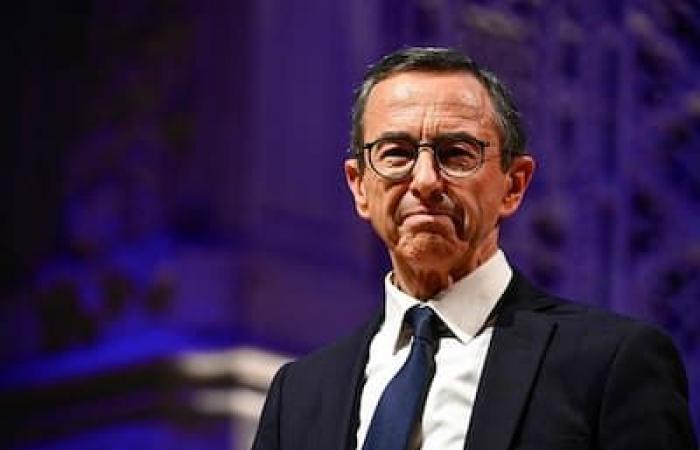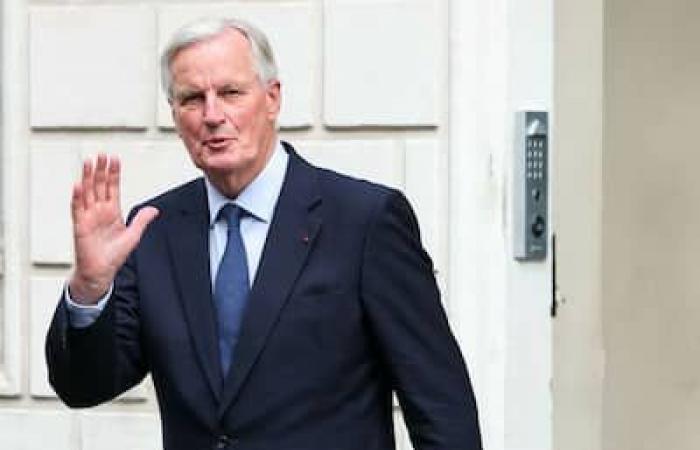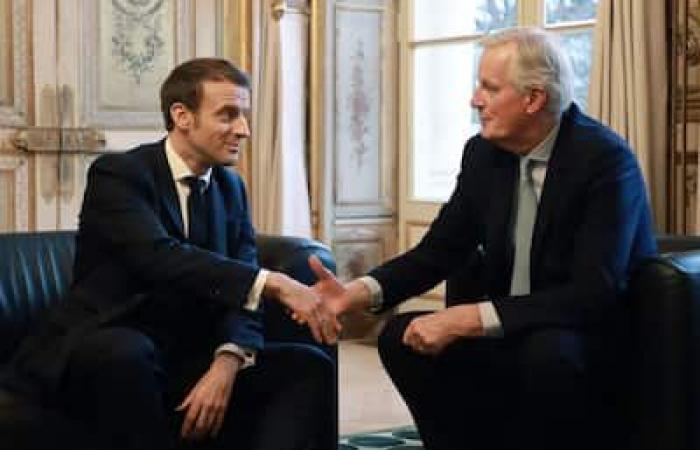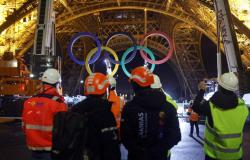Emmanuel Macron on Saturday named the 39 members of Michel Barnier’s right-wing government, the result of a fragile coalition between the presidential camp and Les Républicains, in an attempt to end the most serious political crisis of the Fifth Republic.e Republic.
• Also read: IN PICTURES | Major demonstration in France by the left “against the government”
The National Rally, which could bring down this new executive if it adds its votes to those of the left which has already promised it censure, immediately denounced “the return of Macronism through a back door”. “It is therefore a government that has no future”, reacted its president Jordan Bardella.
The arrival at the Ministry of the Interior of the leader of the Republican senators Bruno Retailleau, with very firm positions on immigration, has crystallized the discontent of the Macronists and the MoDem. Especially since he is one of the only heavyweights in an executive composed of personalities rather unknown to the public, and that the Prime Minister has almost failed to broaden towards the left.
Another personality with conservative positions, Laurence Garnier, expected to be in charge of Family, was finally appointed to Consumer Affairs after two days of controversy.
Bruno Retailleau is the main representative of the party of the new Prime Minister, appointed 16 days ago to Matignon, with Annie Genevard, who inherits the crisis-ridden agriculture sector.
Budget attached to Matignon
The other leading figures, Sébastien Lecornu and Rachida Dati, who came from LR but have already rallied to the president, are also the only two to remain in their posts, respectively the Armed Forces and Culture.
Among the few survivors are the MoDem Jean-Noël Barrot, promoted to Foreign Affairs, as well as the Macronists Catherine Vautrin, who moves to Territories, and Agnès Pannier-Runacher to Ecological Transition and Energy.
At Bercy, an inexperienced Macronist, Antoine Armand, becomes Minister of Economy, Finance and Industry. Public Accounts are returned to former MP Laurent Saint Martin, but he will report directly to Matignon, while the development of the 2025 budget, which has already been delayed by an unprecedented amount, is considered the number one priority in a context of budgetary slippage and sluggish growth.
Among the entrants, the main surprise is the Renaissance MP Anne Genetet for Education, Emmanuel Macron’s priority, in which she is not known to be an expert.
Photo AFP
MoDem’s Geneviève Darrieussecq becomes Minister of Health, another government priority, and LR’s François-Noël Buffet inherits Overseas Territories, while the crisis in New Caledonia is at an impasse and Martinique faces an outbreak of violence.
The only catch coming from the left: Didier Migaud becomes Minister of Justice. But the former socialist deputy has left active politics since 2010.
Parity
Michel Barnier preferred to keep potential candidates for the 2027 presidential election at a distance, including the outgoing Minister of the Interior Gérald Darmanin and the leader of the LR deputies Laurent Wauquiez.
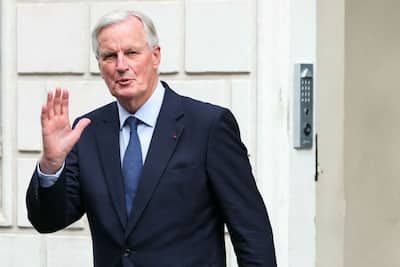
Photo AFP
The new team, which gives pride of place to the Macronist Renaissance party, is strictly gender-balanced, composed of 19 full ministers, 15 deputy ministers and five secretaries of state. It will meet around Emmanuel Macron on Monday at 3 p.m., French time, for its first Council of Ministers.
Three and a half months after the controversial dissolution of the National Assembly, almost 11 weeks after the second round of legislative elections which resulted in a country without a majority, and 67 days after the resignation of Gabriel Attal’s team, whose ministers remained responsible for current affairs, France finally has a fully functioning government.
But the centre-right coalition, which its main shareholders are reluctant to even call a “coalition”, is immediately marked by tensions between Michel Barnier and the “central bloc” of President Macron, who has governed unchallenged for seven years.
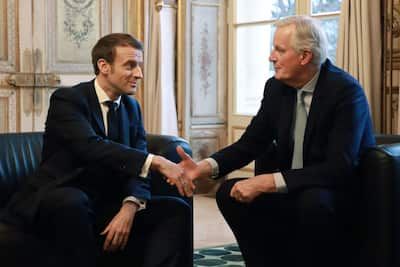
Photo AFP
The bad mood remains in “Macronie”, particularly within the left wing, and in the MoDem, which left doubts hanging until the end about its participation. The cause is a team considered too right-wing and whose program remains unclear.
Pending its general policy statement on 1er In October, Michel Barnier, 73, known for having negotiated the United Kingdom’s exit from the European Union during Brexit, only set out vague priorities.
Among them, the improvement of the “standard of living” and public services, the “control” of immigration, the “economic attractiveness of France”, the reduction of the “ecological debt” and the “control of public finances”. A question mark remains on taxes, which will not increase however for “the middle classes”.
Even Horizons, the party of Édouard Philippe, who was enthusiastic when he was appointed, did not hide the fact that it felt cheated by having only one full minister, Paul Christophe, in Solidarités.
“Government of losers”
Faced with these hesitations, Emmanuel Macron publicly urged his allies on Friday to “help” the Prime Minister form his government.
Now that this is done, the hardest part remains: governing together, without an absolute majority, and with parties determined to maintain their freedom to vote on several key issues.
The New Popular Front, which came out on top in the legislative elections but far from an absolute majority, claimed to govern and promised to oppose the government with all its might.
Several thousand left-wing supporters demonstrated Saturday afternoon in Paris against the Macron-Barnier tandem, at the call of associations, student, environmental and feminist organizations.
The leader of La France Insoumise, Jean-Luc Mélenchon, called on Saturday to “get rid of as soon as possible” this “government of the losers of the legislative elections”, which according to him has “neither legitimacy nor future”, particularly criticizing “the worrying Minister of the Interior”.
“The continuation of Macronism… worse,” added the leader of the socialist deputies Boris Vallaud, who sees it as a “betrayal of the French vote.”

